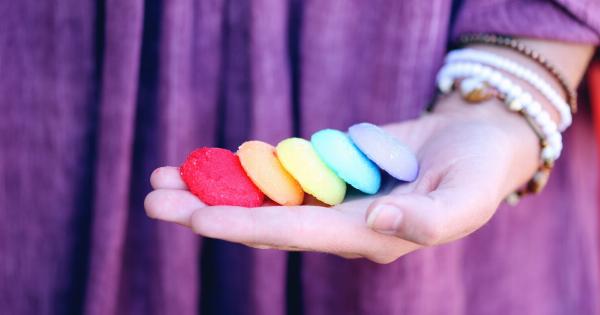If you are one of the millions of people living with irritable bowel syndrome (IBS), you know how frustrating it can be to manage the symptoms of this condition.
From abdominal pain to bloating and constipation, IBS can significantly impact your daily life.
While there is no cure for IBS, there are ways to manage symptoms and improve your overall quality of life. One of the most effective ways to do this is by making changes to your diet.
Certain foods are notorious for triggering IBS symptoms, and avoiding these foods is key to managing your condition.
Foods to Avoid with IBS
1. High-FODMAP Foods
FODMAPs (fermentable oligosaccharides, disaccharides, monosaccharides, and polyols) are a group of carbohydrates that are poorly absorbed by the body. High-FODMAP foods can trigger symptoms of IBS in many people, including gas, bloating, and diarrhea.
Foods that are high in FODMAPs include:.
- Apples
- Artichokes
- Beans
- Broccoli
- Cauliflower
- Garlic
- Mushrooms
- Onions
- Pears
- Wheat
2. Dairy Products
Dairy products are high in lactose, a type of sugar that many people with IBS struggle to digest. If you have IBS, it may be best to avoid or limit your intake of dairy products such as milk, cheese, and ice cream.
Some people find that they can tolerate small amounts of lactose, but others may need to avoid dairy products altogether.
3. Fried or Fatty Foods
Foods that are high in fat or fried can slow down digestion and cause constipation or diarrhea in some people with IBS. Fried foods like french fries, fried chicken, and fried fish should be avoided or limited.
Try baking, grilling, or roasting your food instead of frying it.
4. Spicy Foods
Spicy foods can irritate the lining of the intestines and cause symptoms like abdominal pain, bloating, and diarrhea. If you have IBS, it may be best to avoid spicy foods like hot peppers, chili powder, and curry.
5. Caffeine
Caffeine is a stimulant that can speed up the digestive system and cause diarrhea or abdominal pain in some people with IBS. If you have IBS, it may be best to limit your intake of caffeine. This includes coffee, tea, and soda.
6. Alcohol
Alcohol can irritate the lining of the intestines and cause symptoms like abdominal pain, bloating, and diarrhea in some people with IBS. If you have IBS, it may be best to limit your intake of alcohol.
7. Gluten
Gluten is a protein found in wheat, barley, and rye. Some people with IBS may be sensitive to gluten and experience symptoms like abdominal pain, bloating, and diarrhea after consuming foods that contain gluten.
If you have IBS, it may be best to avoid or limit your intake of gluten-containing foods.
8. Beans and Legumes
Beans and legumes are high in fiber, which can be beneficial for some people with IBS. However, they can also cause gas and bloating in some people.
If you have IBS, it may be best to limit your intake of beans and legumes, or try soaking them overnight before cooking to make them easier to digest.
9. Artificial Sweeteners
Artificial sweeteners like aspartame and sucralose can be found in many foods and drinks marketed as “diet” or “sugar-free.” They can be difficult for some people with IBS to digest and may cause symptoms like gas, bloating, and diarrhea. If you have IBS, it may be best to avoid or limit your intake of artificial sweeteners.
10. Raw Fruits and Vegetables
Raw fruits and vegetables are high in fiber, which can be beneficial for some people with IBS. However, they can also be difficult to digest and cause symptoms like gas and bloating.
If you have IBS, it may be best to stick with cooked fruits and vegetables, or try peeling them and removing seeds and skins before eating.
Conclusion
Managing IBS can be challenging, but avoiding certain foods can help alleviate symptoms and improve your overall quality of life.
By avoiding high-FODMAP foods, dairy products, fried or fatty foods, spicy foods, caffeine, alcohol, gluten, beans and legumes, artificial sweeteners, and raw fruits and vegetables, you may be able to reduce or eliminate symptoms of IBS.




























